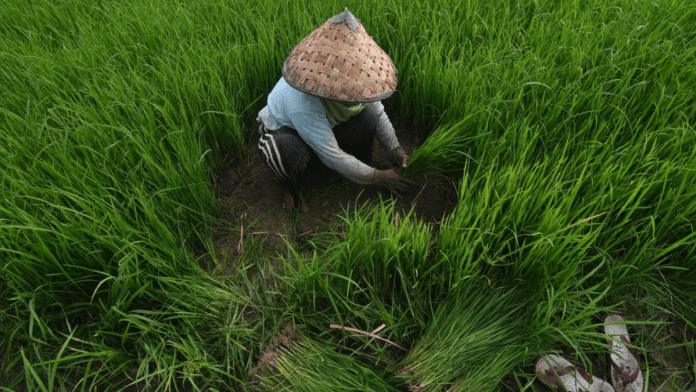News in brief: Indonesia is preparing 500,000 hectares of agricultural land to combat the anticipated long drought caused by the El Nino climate phenomenon and ensure sufficient rice production. The country’s government has also initiated a food estate project to reduce reliance on food imports and maintain food security.
Indonesia is gearing up for the adverse weather effects expected to come with the El Nino climate phenomenon. To this end, the government is preparing 500,000 hectares of agricultural land for rice production. It hopes this will curb the effects of the anticipated long drought that follows.
Indonesian agricultural minister, Syahrul Yasin Limpo, stated that some regions and local governments in the country are ready to make land available for the project to support the availability of the national rice stock.
Joko Widodo, the country’s president, had, in a separate meeting regarding rice availability and affordability, informed his staff to ensure the availability of rice in the coming months.
In addition, the country has initiated a number of interventions to ensure food security including an ongoing food estate project. It kicked off a project in 2020 that will claim up to 770,000 hectares, which is about ten times the size of Singapore, to eliminate reliance on food imports.
Syahrul claimed to have mapped the worst impacts on rice stock in Indonesia ahead of the peak of El Nino, which is predicted to happen from August to September 2023. He disclosed that the country anticipated a deficit of around 300,000 to 1,2 million tonnes in rice production. However, he expressed optimism that the additional 500,000 hectares for rice production would weather the strain national food stocks.
Additionally, Indonesia still has 2.7 million tonnes of rice stock available until September this year. It has also managed to sustain rice price and stock.
The country relies on about 800,000 hectares of rice fields to sufficiently fulfil local needs, which is about 2 million tonnes of rice monthly. The 500,000 hectares project will produce dry grain products of around 3 million tons, which is about 1.5 million tonnes of rice.
Besides rice, Indonesia’s main agricultural products include coconuts, soybeans, bananas, palm oil, coffee, tea, palm, rubber, and sugar cane. These commodities make up a large portion of the country’s exports, with palm oil and coal as leading export commodities.



